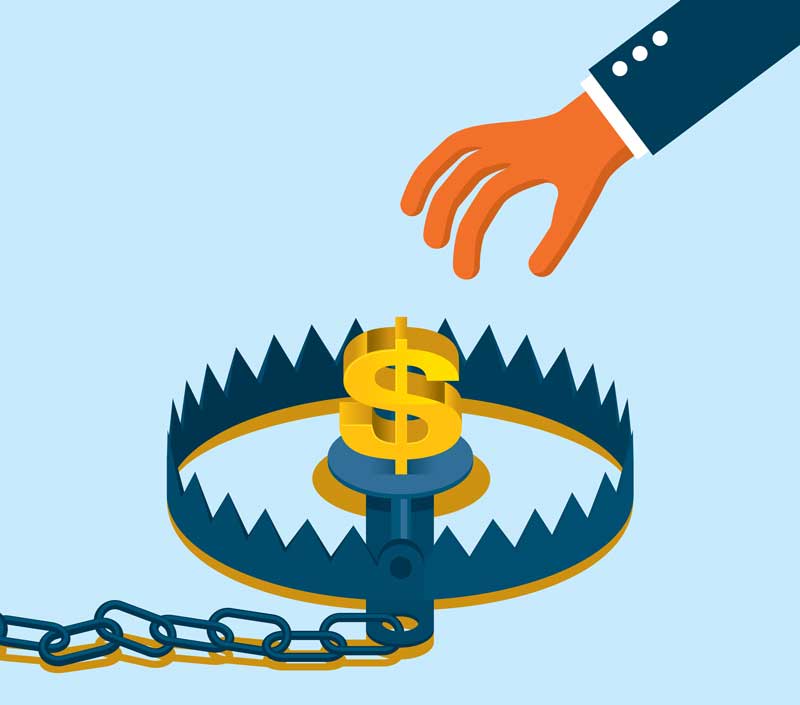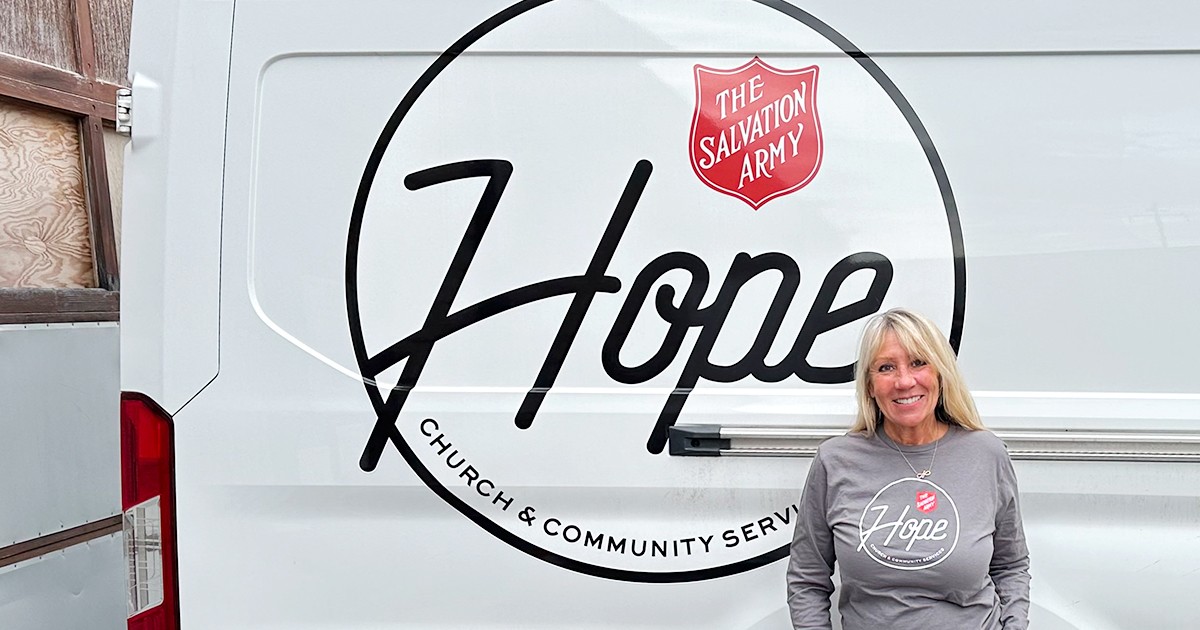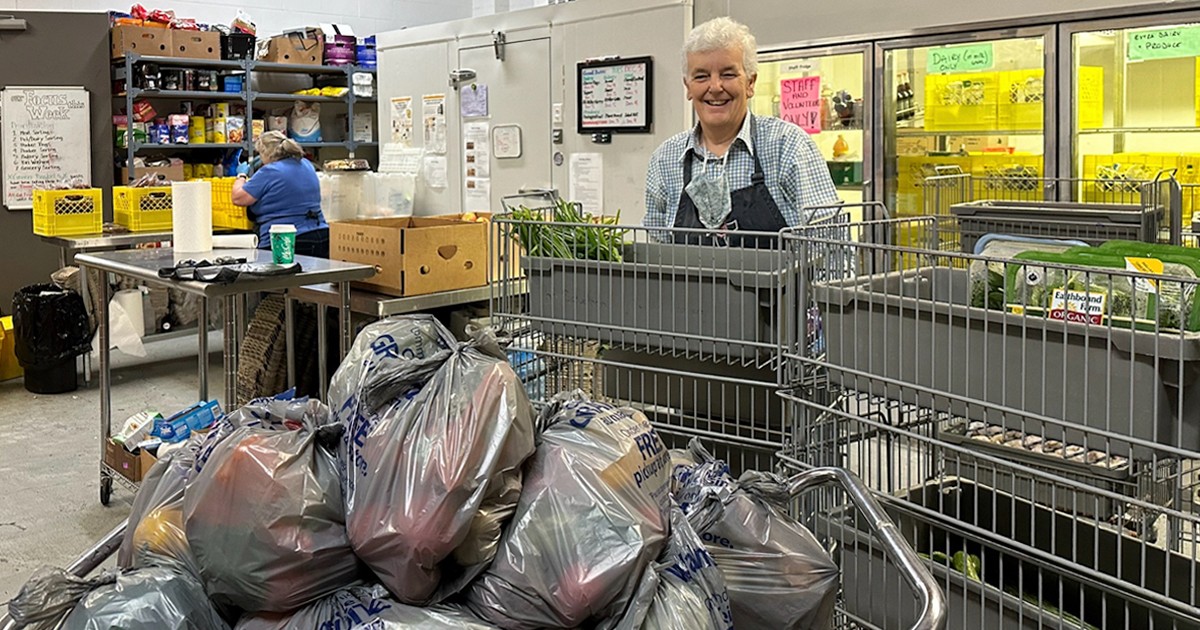I had a bus to catch and I wasn’t sure I could make it. Then, in mild panic, I realized I didn’t have money for the fare. Fortunately, I work in an office and was able to borrow the princely sum of $2.25. In cities across the territory, people in financial straits experience panic, even dread—but their needs are far more serious than bus fare.
Collectively, we are drowning in a sea of debt. Statistics show that levels of consumer debt are at unprecedented levels. A recent review of local and national news reveals that our debt regularly tops headlines. Yet it seems that more credit is always available from somewhere, even when individuals or households appear to have reached their limit. Cue cash advance services, or payday loans.
What is a payday loan? It is a short-term loan, for a fee, for an amount usually under $1,000. The term of the loan is often only 14 days. Loan agreements are dependent on a secured repayment method, such as a post-dated cheque or direct bank withdrawal, before the loan is granted. Additional fees are applied if the repayment terms are not met.
Payday loans can be an important source of short-term funds for the unexpectedly cash-strapped consumer. The key is to use them only as a last resort because of their high cost. Here’s how much a $200 loan would cost if the borrower didn’t repay the loan on the due date and only repaid it after three months: $200 (principal) + $30 (initial fee for the 14-day loan term) + $40 (default charge for not paying on time) + $40.50 (three months’ interest at an annual rate of 60 per cent) = $310.50. This is equivalent to a 221 per cent annual interest rate.
Payday loan providers are charging exorbitantly high rates and profiting on the backs of the vulnerable. This is why this industry has earned the label predatory lending. It makes me wonder why ethical businesses, such as the big banks, are not stepping in to provide financial products that offer alternatives for those with few options, while still mitigating their own risks. Corporations must do more.
So what should we do? I suggest a three-pronged approach. First, greater monitoring of predatory lenders is necessary. In Australia, it has been suggested that debt payments, as a percentage of income, should be capped at five per cent for those on social assistance or in low-income brackets. Our government should determine and adopt such a limit and then enforce it.
Second, we must find ways to increase financial literacy. Early education—such as mandatory financial management courses in elementary and high school —is key. For children and youth above a certain age, a small monthly government grant would provide practical experience in managing their own finances. Giving people the opportunity to learn and understand consequences when the risks are small would be highly preventative.
Third, we need to come alongside people facing financial management challenges or crises, through emotional support, coaching and resource assistance. The Salvation Army already offers this type of help through its client management relationships, programs such as Pathway of Hope and rent- or utilities-assistance programs.
People find themselves in difficult situations for a variety of reasons— unexpected health or family challenges, mental health issues, issues related to age or loss of employment. The Salvation Army partners with individuals to find practical solutions in the context of helping relationships. We must continue to grow in expertise in this area to make the biggest possible difference.
In conclusion, I offer two quotes from John Wesley that can help guide our actions. First a word to those who find themselves in a vulnerable financial state: “Earn all you can, give all you can, save all you can.” If that is our direction, we will avoid most money problems. And a word for those who do not find themselves in financial distress: “Do all the good you can, by all the means you can, in all the ways you can, in all the places you can, at all the times you can, to all the people you can, as long as ever you can.” In other words, help others. Volunteer at a Salvation Army program, listen and be part of the solution.
Major David McNeilly is the corps ministries secretary in the Canada and Bermuda Territory.
Collectively, we are drowning in a sea of debt. Statistics show that levels of consumer debt are at unprecedented levels. A recent review of local and national news reveals that our debt regularly tops headlines. Yet it seems that more credit is always available from somewhere, even when individuals or households appear to have reached their limit. Cue cash advance services, or payday loans.
What is a payday loan? It is a short-term loan, for a fee, for an amount usually under $1,000. The term of the loan is often only 14 days. Loan agreements are dependent on a secured repayment method, such as a post-dated cheque or direct bank withdrawal, before the loan is granted. Additional fees are applied if the repayment terms are not met.
Payday loans can be an important source of short-term funds for the unexpectedly cash-strapped consumer. The key is to use them only as a last resort because of their high cost. Here’s how much a $200 loan would cost if the borrower didn’t repay the loan on the due date and only repaid it after three months: $200 (principal) + $30 (initial fee for the 14-day loan term) + $40 (default charge for not paying on time) + $40.50 (three months’ interest at an annual rate of 60 per cent) = $310.50. This is equivalent to a 221 per cent annual interest rate.
Payday loan providers are charging exorbitantly high rates and profiting on the backs of the vulnerable. This is why this industry has earned the label predatory lending. It makes me wonder why ethical businesses, such as the big banks, are not stepping in to provide financial products that offer alternatives for those with few options, while still mitigating their own risks. Corporations must do more.
So what should we do? I suggest a three-pronged approach. First, greater monitoring of predatory lenders is necessary. In Australia, it has been suggested that debt payments, as a percentage of income, should be capped at five per cent for those on social assistance or in low-income brackets. Our government should determine and adopt such a limit and then enforce it.
Second, we must find ways to increase financial literacy. Early education—such as mandatory financial management courses in elementary and high school —is key. For children and youth above a certain age, a small monthly government grant would provide practical experience in managing their own finances. Giving people the opportunity to learn and understand consequences when the risks are small would be highly preventative.
Third, we need to come alongside people facing financial management challenges or crises, through emotional support, coaching and resource assistance. The Salvation Army already offers this type of help through its client management relationships, programs such as Pathway of Hope and rent- or utilities-assistance programs.
People find themselves in difficult situations for a variety of reasons— unexpected health or family challenges, mental health issues, issues related to age or loss of employment. The Salvation Army partners with individuals to find practical solutions in the context of helping relationships. We must continue to grow in expertise in this area to make the biggest possible difference.
In conclusion, I offer two quotes from John Wesley that can help guide our actions. First a word to those who find themselves in a vulnerable financial state: “Earn all you can, give all you can, save all you can.” If that is our direction, we will avoid most money problems. And a word for those who do not find themselves in financial distress: “Do all the good you can, by all the means you can, in all the ways you can, in all the places you can, at all the times you can, to all the people you can, as long as ever you can.” In other words, help others. Volunteer at a Salvation Army program, listen and be part of the solution.
Major David McNeilly is the corps ministries secretary in the Canada and Bermuda Territory.










Leave a Comment